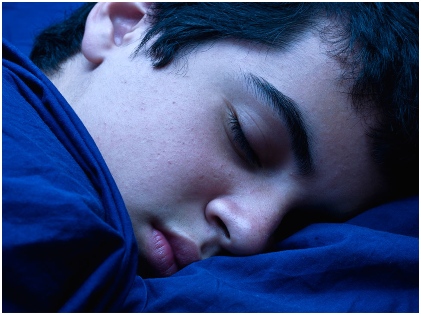This Is How Daylight Saving Time Might Mess With Your Fitness Schedule (And How To Deal With It)
When you talk about daylight saving, it’s usually about all about the clock rolling back, but did you know that it is not good for your health and well-being? That’s right, daylight saving starts on November 3, 2019, and your clock would go back by almost an hour and that implies you would be getting some extra light while you go out on your morning run. But, if you are thinking of running after work in the evening, you would most probably lose out on an hour of the daylight. Getting a nap for around 60 minutes might not seem enough, it has a huge impact when it comes to your fitness routine. So, here are a few tips on how you could reduce the impact of Daylight saving on your well-being.
Adjust The Time You Hit The Bed
 Hitting the bed around 30 minutes earlier at night and waking up 30 minutes later than you usually do, might sound good. But it is difficult for your body to adjust to the changing routine and would take it some time before things fall in place. The weekend seems to be the perfect time when you can catch some extra sleep. That might help you overcome the tiredness and help you be prepared to go for a run in the morning before you go for work.
Hitting the bed around 30 minutes earlier at night and waking up 30 minutes later than you usually do, might sound good. But it is difficult for your body to adjust to the changing routine and would take it some time before things fall in place. The weekend seems to be the perfect time when you can catch some extra sleep. That might help you overcome the tiredness and help you be prepared to go for a run in the morning before you go for work.
Opt to Run The Night Prior To Daylight Saving
 Your body’s circadian rhythm needs some time to adjust to the new weekday time table and hence, a good night’s sleep is mandatory. Now how do you start? Opt to go out for your run on Saturday as exercise helps to boost the quality of your sleep. Experts recommend abstinence from alcohol and beverages which have a high percentage of caffeine on the weekend since that will keep you wide awake. Stop consuming caffeine by 2 P.M. on Saturday. This will probably help you get some quality sleep at night.
Your body’s circadian rhythm needs some time to adjust to the new weekday time table and hence, a good night’s sleep is mandatory. Now how do you start? Opt to go out for your run on Saturday as exercise helps to boost the quality of your sleep. Experts recommend abstinence from alcohol and beverages which have a high percentage of caffeine on the weekend since that will keep you wide awake. Stop consuming caffeine by 2 P.M. on Saturday. This will probably help you get some quality sleep at night.
Stick To The Same Running Schedule On Weekdays
 If you usually go out on your morning run at 5:30 A.M., then adhere to that routine on Monday morning although you would have a feeling it’s already 6:30 for the first few days. This will go a long way in helping you adjust to the new time table faster. Besides that, you will get more sunlight during the morning. You might probably feel a little befuddled in the beginning and might have a tough time during your workout sessions, following the change in the way the clock is working and that’s a warning that experts are sending out. If you are running short of your quality sleep, you would feel more distressed and depressed. You will have a feeling that you aren’t doing any justice to your workout, but that might not exactly be the case. So, don’t change your schedule on Monday morning. Give yourself some time to acclimatize.
If you usually go out on your morning run at 5:30 A.M., then adhere to that routine on Monday morning although you would have a feeling it’s already 6:30 for the first few days. This will go a long way in helping you adjust to the new time table faster. Besides that, you will get more sunlight during the morning. You might probably feel a little befuddled in the beginning and might have a tough time during your workout sessions, following the change in the way the clock is working and that’s a warning that experts are sending out. If you are running short of your quality sleep, you would feel more distressed and depressed. You will have a feeling that you aren’t doing any justice to your workout, but that might not exactly be the case. So, don’t change your schedule on Monday morning. Give yourself some time to acclimatize.
Stay Away From Your Alarm Clock
 This trick looks quite simple but is effective than you would like to believe. Your internal clock will take time to adjust, but your alarm clock would force you to get out of bed depriving you of an hour’s sleep. The truth is that you would require an extra bit of motivation to get out of your bed for the first few days. The solution to this is – just get up and go out. By continuing this for some days, you would feel that you have restored normalcy in your daily schedule and that would help you stick to your fitness schedule.
This trick looks quite simple but is effective than you would like to believe. Your internal clock will take time to adjust, but your alarm clock would force you to get out of bed depriving you of an hour’s sleep. The truth is that you would require an extra bit of motivation to get out of your bed for the first few days. The solution to this is – just get up and go out. By continuing this for some days, you would feel that you have restored normalcy in your daily schedule and that would help you stick to your fitness schedule.
You Can Run With The Sunrise
 If things aren’t working in your favor in the initial phase, you can choose to head out with sunrise, say around 6:30 A.M. When the sunlight hits you, your brain stops producing melatonin, the hormone that is responsible for your sleep. When you go out in the sun, the light will prevent your brain from producing this hormone and you would feel wide awake.
If things aren’t working in your favor in the initial phase, you can choose to head out with sunrise, say around 6:30 A.M. When the sunlight hits you, your brain stops producing melatonin, the hormone that is responsible for your sleep. When you go out in the sun, the light will prevent your brain from producing this hormone and you would feel wide awake.
These were some basic steps that can help you maintain your fitness schedule when daylight saving strikes. Your body will adjust to the drastic changes in your surroundings, but not before making you feel sick and lethargic. That is when you can derive benefits from the aforesaid tips.
